Over the years, New York nightlife has dealt with many obstacles, from the city’s now-repealed Cabaret Law, which required bars to have a specific license to allow dancing inside, to sky-high rents and the constant shuttering of DIY spaces. As challenging as some of these constraints are, or have been, nothing has ever threatened the city’s club scene quite like the pandemic. Since March, the doors to every music venue, nightclub, secret warehouse and underground spot have been shut, forcing the owners of such spaces to crowdfund for survival and take their shows online if they want to keep the once-buzzing after dark scene alive.
The musicians and DJs themselves have faced personal hardships — struggling to find work and figuring out how to channel all the energy of an IRL show into an online rave or Instagram live set. Through it all, DJs have managed to find solidarity and support within New York’s diverse music community, and the movers and shakers have aligned to advocate for a nightlife scene that will emerge as more accepting of LGBTQ+ and POC DJs than ever. It’s their hope that when clubs and bars are allowed to reopen, post-Covid-19, they will receive the support, recognition and the compensation they deserve.
Here, some of the city’s most exciting young DJs tell us about the challenges they’ve faced in the industry and what they’ve been up to during quarantine.
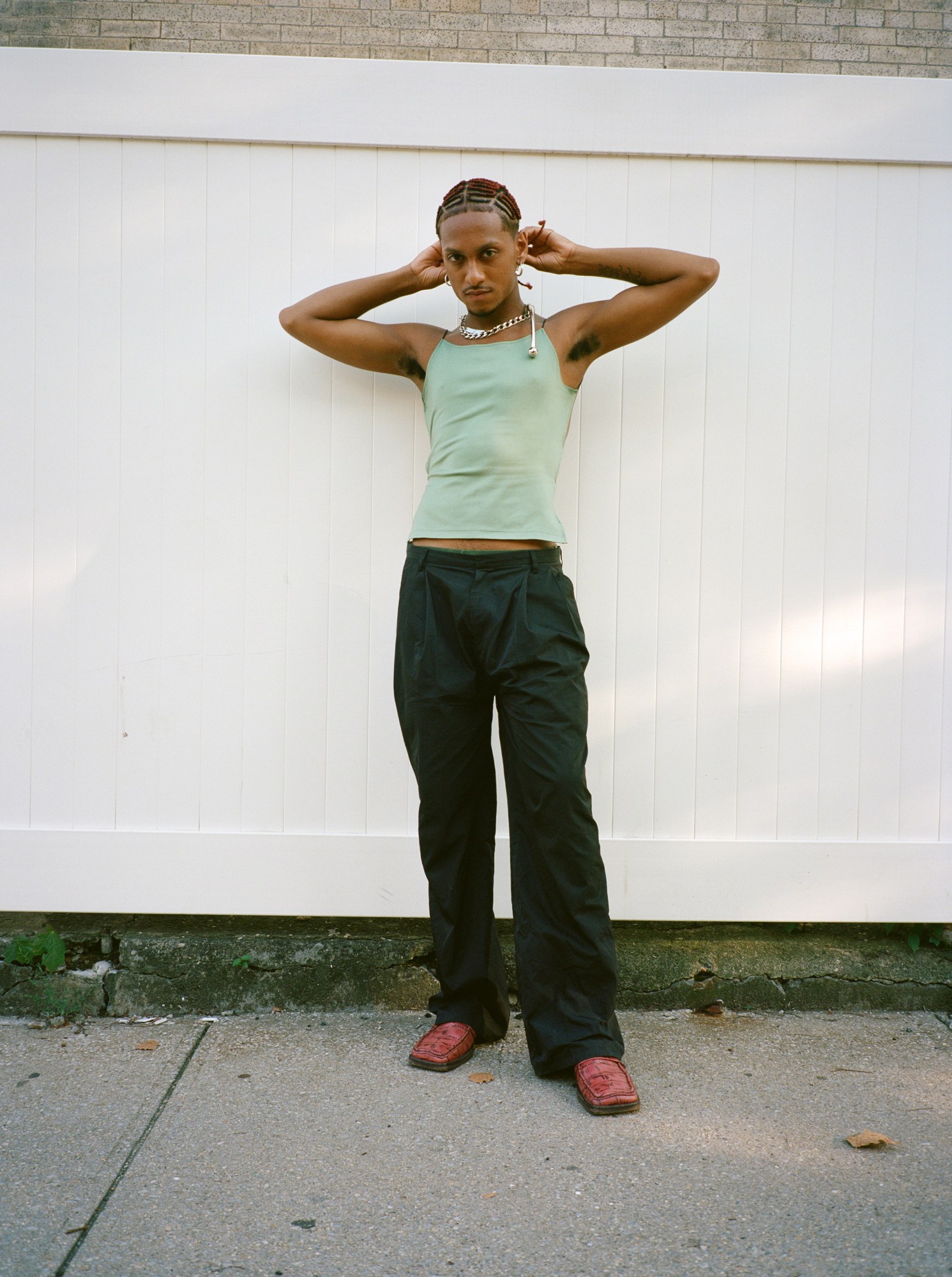
Jesus Hilario-Reyes (MORENXXX), 23
Where can we catch one of your sets?
All of my mixes/music are on my SoundCloud.
How did you get into DJing and making music?
I began with playing my friend’s house parties in Chicago. Oftentimes I would end up on the aux, then it progressed to bringing my laptop and playing sets on Virtual DJ. A friend of mine asked me to play this night at a local venue, and a lot of the bigger DJs in the Chicago scene came out that night, like Cqqchifruit and Ariel Zetina. Cqqchifruit ended up booking me for my first club night the next month, playing with Thoom and some others, and that’s kind of how it all began two or three years ago.
While this was happening I was going to school at the Art Institute of Chicago, studying performance and sculpture. I began to think more about sound and music, then my practice evolved into sonic performance and cinema, art and tech. While working on film/video, I would produce a lot of the sound work, so this peaked my interest in making music. I recently finished my own original track, which I’m hella excited about, it was inspired by those late 90s vocal techno moments.
What has been the most challenging part of pursuing this profession?
The most challenging thing is definitely access to technology. I was lucky enough to have my own radio station while I was in school and had access to CDJs — to be able to learn that way, but without that, it probably would have taken me much longer to figure it out. The same goes for music production, equipment is so inaccessible and expensive. Thankfully a lot of the people in the community are willing to share and teach you. I definitely get a sense of abundance in New York. Whenever I have any issues or questions, I know certain people I can go to. A friend of mine. Bergsonist, made this really helpful group called Pick Up the Flow, where people sell equipment, ask questions and share resources.
How has the pandemic influenced your work and creative process?
The pandemic definitely took a toll on my creative process and mental health — one of my biggest inspirations is just being able to go out and listen to DJs play and dance. Those days feel like an era of the past, weirdly. It’s heartbreaking. It’s so crazy how everything played out, like we are truly seeing democracy die at the hands of this virus, all the while there’s a huge uprising when it comes to racial injustice… like it really took a pandemic for many people around the world to notice that Black people are actually going through it, huh?
The pandemic also gave us so much time, and that has honestly been really rewarding. Now I actually have time to work on ideas that I have been sitting with for far too long. As for DJing, that has stopped for the most part. Online parties and broadcasting seem to be few and far between now.
How can New York nightlife be more accepting of LGBTQ+ and POC DJs?
I feel like I only surround myself with LGBTQ+ and POC DJs, as well as organizers and promoters who seek to center us. Any nightlife that doesn’t really center that community — I’m not really interested in.
When this is all over, what sort of changes do you hope to see in regards to the scene there?
It’s really hard to envision a future ‘when this is all over’. It’s all so uncertain. But seeing bars reopening and secret raves — I think we all just need to be more responsible, take care of ourselves and one another. Failures are going to happen, period. We all need to hold each other accountable, rather than drag each other. We really need to reimagine a way of getting that feeling of liberation from dance. I remain hopeful that inevitably we will be back at Bossa Nova or Nowadays just carrrrrrrrying.
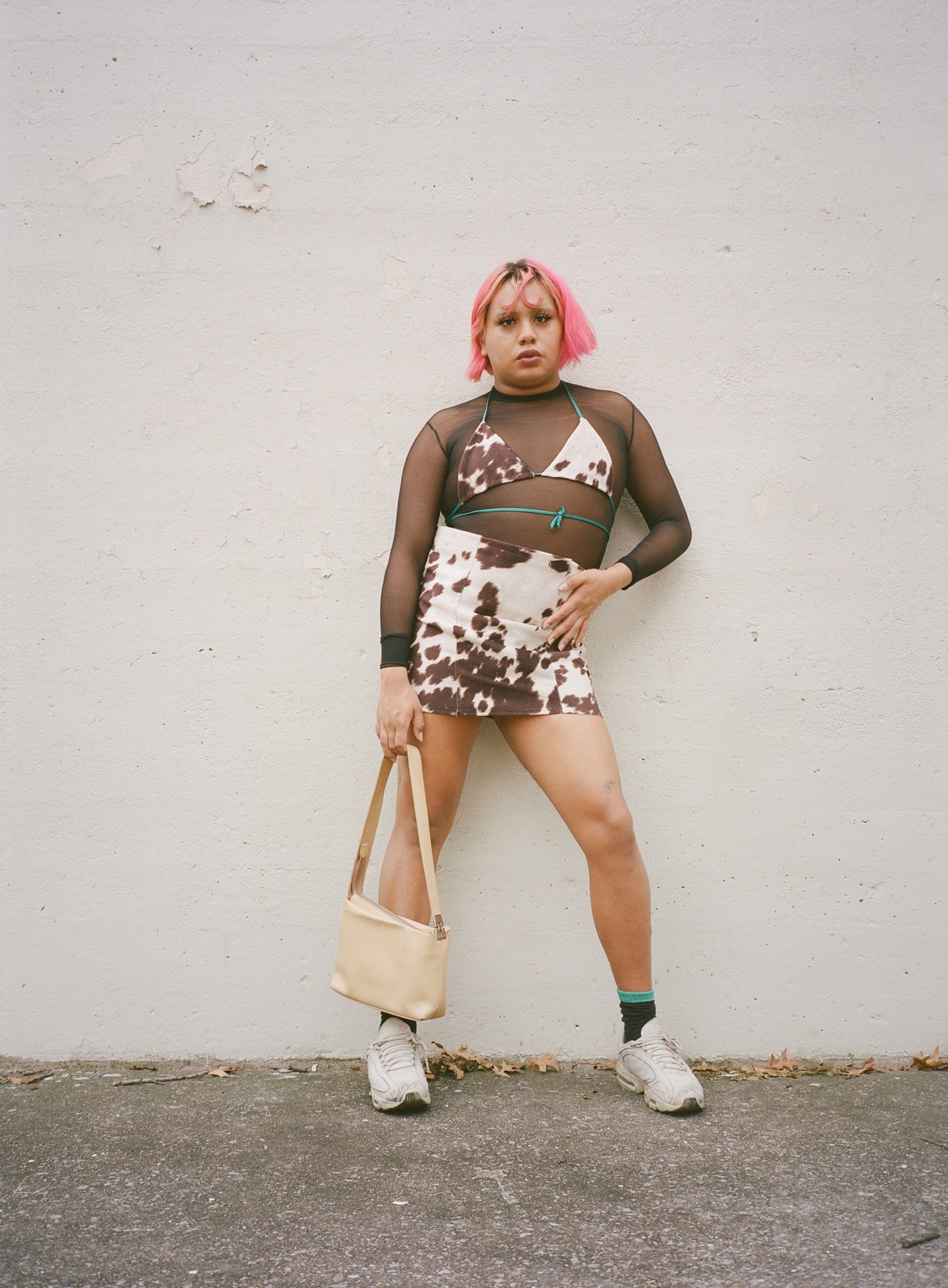
Antpuke aka Ava, 21
Where can we catch one of your sets?
You can always find one of my sets on my SoundCloud. I’m currently working on a livestream to raise money for a trans publishing house via gofundme, also working on a hard dance/club hitter compilation that is tied with a zine featuring queer artists. Proceeds will go to a variety of gofundme’s for the dolls.
How did you get into DJing and making music?
I got into DJing by becoming a SoundCloud rat. Sometimes I would end up in a big hole listening to tunes of tunes that I’ve never heard before — spending hours of days exploring different worlds of music. The lack of queer and trans folks at the forefront of the music scene really pushed me to end the common cis male-dominated world.
What has been the most challenging part of pursuing this profession?
The most challenging part of this profession as a brown trans girl is to always feel like I have to prove myself. Kinda love it tho, kuz the doll be working!
How has the pandemic influenced your work and creative process?
Miss coronavirus has influenced my work and my creative process by showing that my community, the trans DJ dolls, that experience similar things that I experience are literally all we have. We have to keep this nightlife thing alive. I want people like me to be seen and heard.
How can New York nightlife be more accepting of LGBTQ+ and POC DJs?
New York nightlife can be more expecting to LGBTQ+ and POC DJs by catering to us, specifically making sure we get our paid rate for our talent. Making sure Ubers there and back are booked for us. Making sure we are safe in these spaces. We want our needs to met and our voices to be heard. Respect us more!
When this is all over, what sort of changes do you hope to see in regards to the scene there?
The sort of changes I’m aiming for is to normalize having queer/trans folks aka the dolls be at the forefront of this shit!
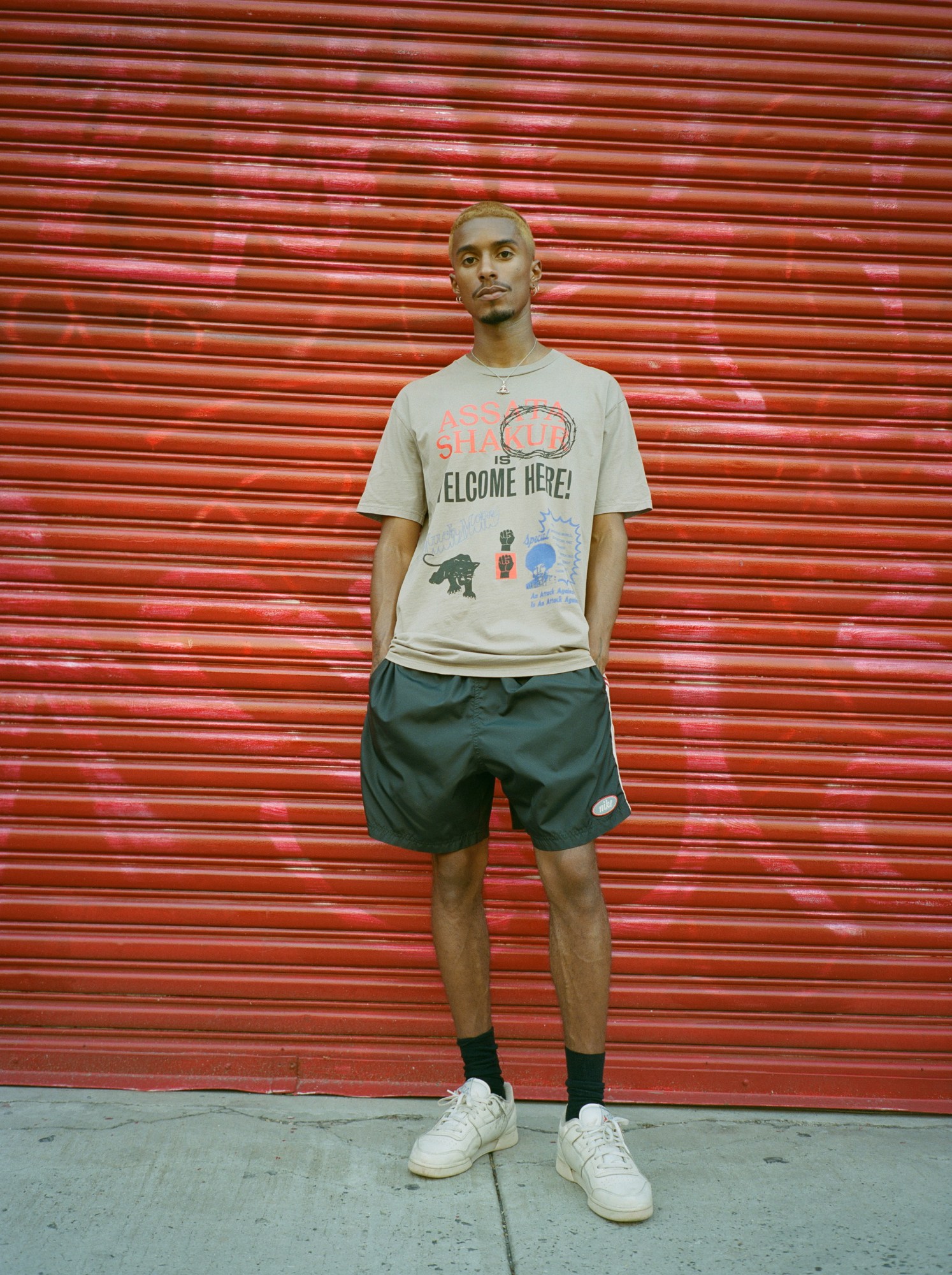
DONIS, 23
Where can we catch one of your sets?
On SoundCloud, here.
How did you get into DJing and making music?
I grew up in a very musical household. I got into making music and DJing mainly through my father being a percussionist. He was known in the neighbourhood for having jam sessions in his bodega. He put me onto a lot at a young age.
What has been the most challenging part of pursuing this profession?
I think the most challenging part for me has been carving out and defining my own style. There are so many amazing DJs in New York, I think it’s important to stand out and have your own sound.
How has the pandemic influenced your work and creative process?
The pandemic has given me the time to hone in on the production side of things, which is a blessing. I plan on releasing some things by the end of the year.
How can New York nightlife be more accepting of LGBTQ+ and POC DJs?
By allowing us to use their spaces without discriminating against us.
When this is all over, what sort of changes do you hope to see in regards to the scene there?
When this is all over I hope to see more Black and brown kids in spaces like Nowadays, Good Room and Public Records. I want to see more intersectionality between all the different scenes in New York. I’d like to see the ravers getting along with the house heads, drill fans, dance hall kids, etc.
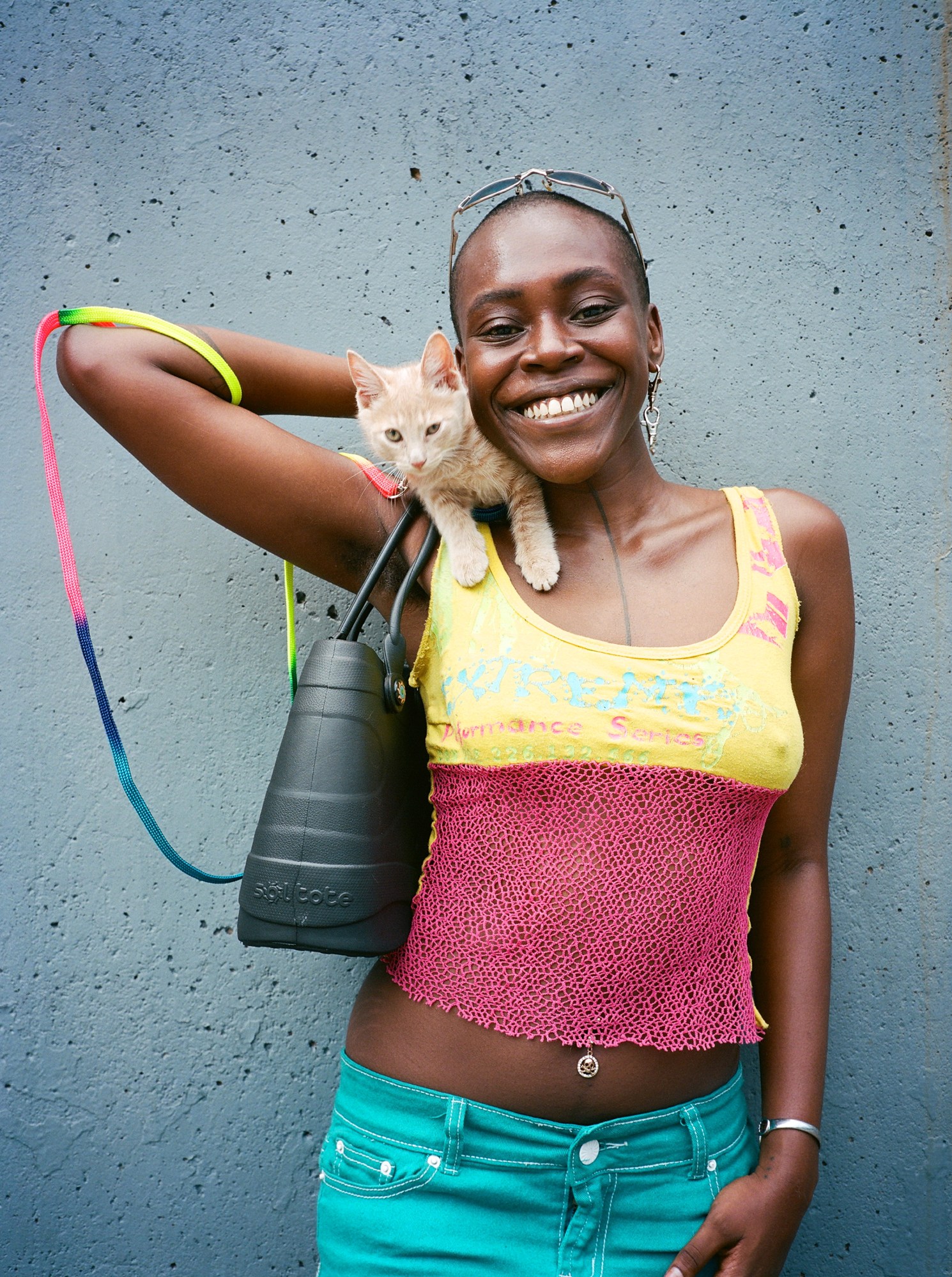
Where can we catch one of your sets?
On SoundCloud, here.
How did you get into DJing and making music?
I started DJing in summer of 2018.
What has been the most challenging part of pursuing this profession?
The most challenging part about pursuing this profession is definitely breaking down “only men DJ” and making space for the queer community to thrive and be safe in nightlife.
How has the pandemic influenced your work and creative process?
The pandemic just gave me that push to buy equipment and DJ for myself. The pandemic allowed me to find the sound I felt represented and felt like me to me, and others.
How can New York nightlife be more accepting of LGBTQ+ and POC DJs?
I believe New York can be more accepting of POCLGBTQIA+ community when that realize we are the ones making the art that they love and learned from.
When this is all over, what sort of changes do you hope to see in regards to the scene there?
I hope to see more compassion, individual care, respect and accountability in the scene when we are in a safer environment to crowd.
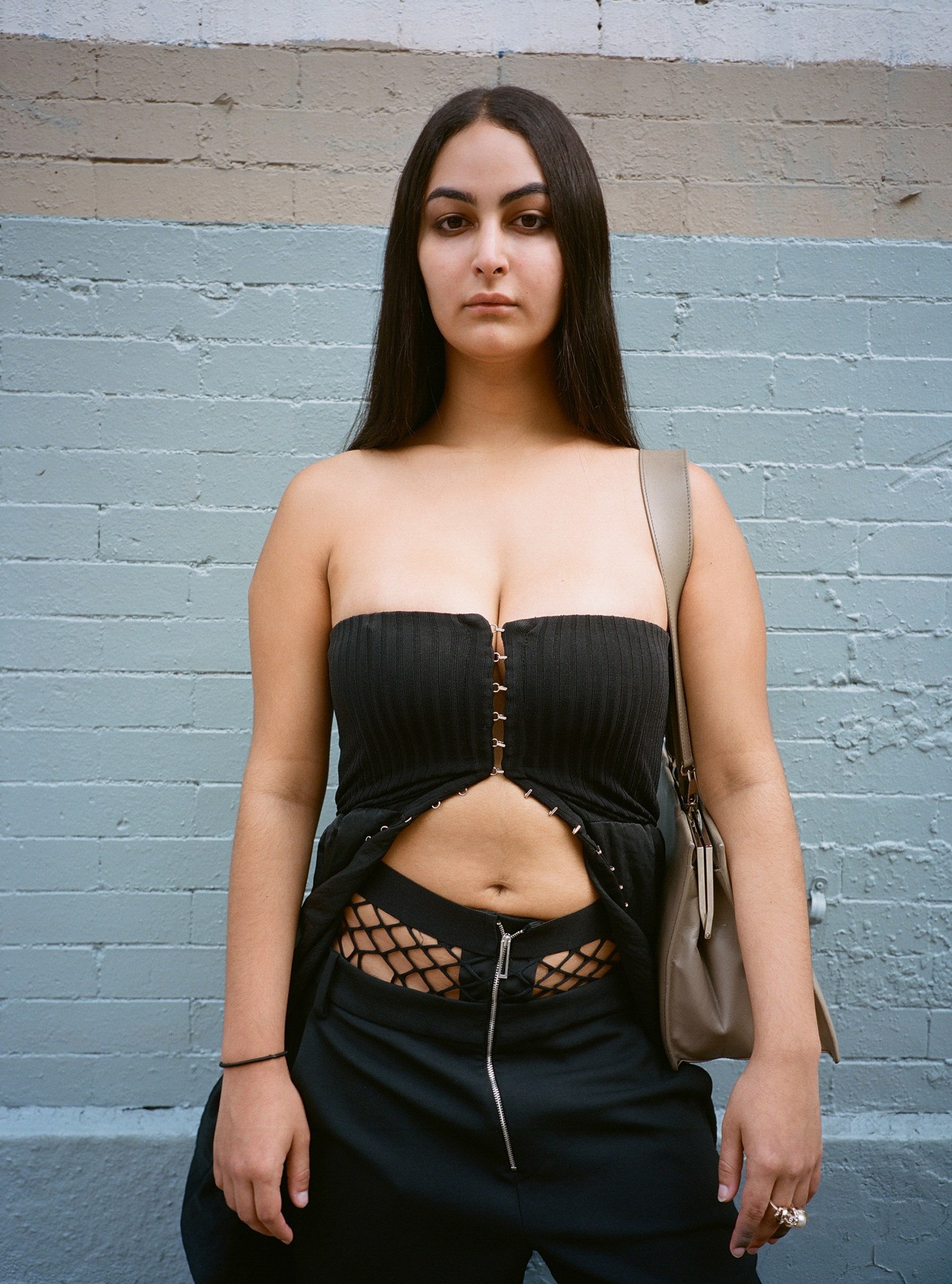
Sausha, 23
Where can we catch one of your sets?
I’m always around.
How did you get into DJing and making music?
I’m the party princess, It was a natural progression lol! Just a matter of putting all the pieces together.
What has been the most challenging part of pursuing this profession?
I feel like this profession pursues me more than I pursue it. It’s hard to stay inspired when everything around you feels ingenuine. DJing is not that deep.
How has the pandemic influenced your work and creative process?
I can’t even lie, it honestly made me lazier. Times are tough.
How can New York nightlife be more accepting of LGBTQ+ and POC DJs?
Compensation is the only way. The girls birthed the scene and in 2020, it’s time to pay it back. Here’s an example: venmo @sausha. New York nightlife will be receiving an invoice.
When this is all over, what sort of changes do you hope to see in regards to the scene here?
It’s a doll takeover. There’s nothing anyone can do.
Credits
Photography Rafael Martinez.


